How to beat anxiety
One in five of us experience anxiety on a daily basis and most of us have no idea how best to deal with it. Don't panic – help is at hand. Here's how to beat anxiety...

If you’re struggling to manage your anxiety, discover how to beat your symptoms and lead a more peaceful life with these simple methods and lifestyle changes…
Whether it’s fear of what might be around the corner or worry that you’ll make some terrible mistake, the government’s 2013 ONS Wellbeing survey reported that one in five of us experience anxiety on a daily basis while research by Nuffield Health suggests that 23 million UK adults (44 per cent) experience anxiety symptoms at least once a week.
Women seem to suffer disproportionately. A recent survey of more than 1,000 UK women found that two-thirds feel anxious at least once a week and that a third of these have no idea how to cope with these feelings. And the numbers are rising.
How to beat anxiety
There is good news, however. There are simple, everyday actions you can take that will help alleviate the symptoms of anxiety and make it less likely to catch you out the next time.
Instead of reaching for a glass of wine, we explore how to beat anxiety through healthier methods, mindful techniques and simple lifestyle changes…
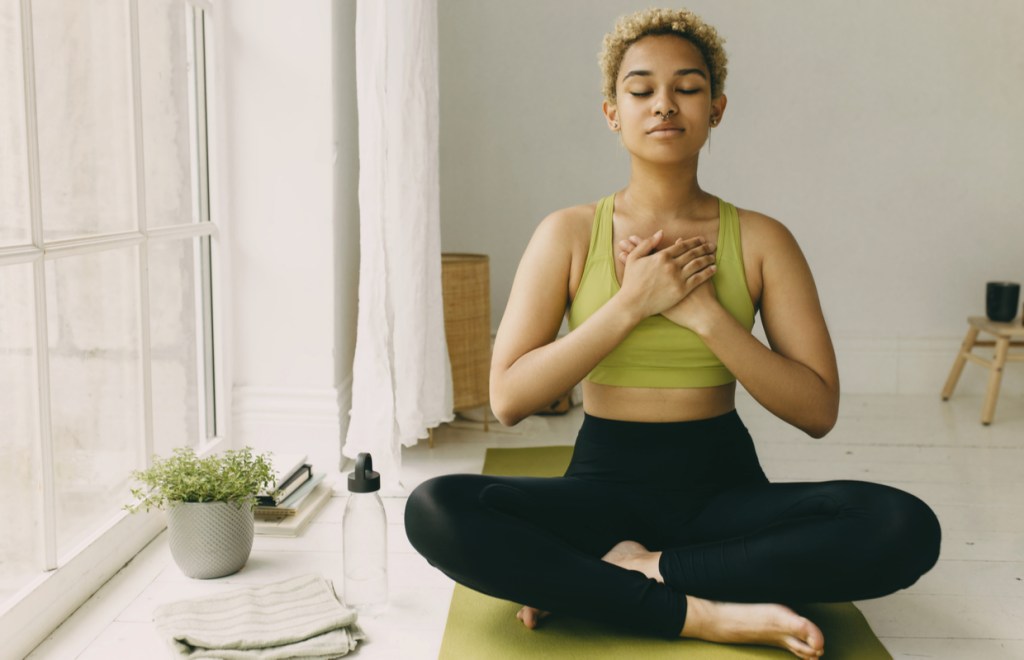
1. Practice mindfulness
Mindfulness is simply where you practice bringing yourself into the present moment, to be fully aware of your surroundings and place in the world. While many of us strive to be more mindful, practicing mindfulness is easier said than done in our busy, modern lives – especially when you’re also contending with a million and one different thoughts whizzing around your head.
Simple mindfulness exercise for anxiety:
If you struggle to practice mindfulness due to your anxiety, there are some simple methods you can try to gently nudge yourself into the present moment. This mindfulness exercise is one that Ruby Wax suggests to readers in her book: if your emotions or thoughts are getting too hot, try switching your attention elsewhere to take down the heat.
This simple method of distraction can help you to ‘get out of your head’, and feel more connected to your body. Try not to pick something that will harm you – for example, drugs, overindulgence in food or shopping. Instead, try involving yourself in a healthier activity or pastime, that will bring you into the present moment. For example:
- Start counting from one to 100 backwards
- Watch an engaging film
- Read something easy and comforting
These exercises might sound too simple to truly help you beat anxiety, but you’d be surprised at how effective they can be at promoting a more mindful – and less anxious – state of being.
Find out more: Mindfulness walking: the power of moving meditation

2. Try grounding activities and exercises
If you’re prone to anxiety, it’s important to introduce regular ‘grounding’ activities into your life that calm you, such as yoga, Pilates, tai chi or a chat with friends. ‘These things can lower raised adrenaline levels and help to alleviate anxiety,’ says psychologist Dr Bijal Chheda-Varma.
Similar to mindfulness techniques, there are also specific grounding exercises are ideal for encouraging you to exist in the present moment.
When you’re feeling anxious, try the following grounding technique, which encourages you to focus on your 5 different senses:
- Sit or lie somewhere warm and comfortable.
- Take three deep breaths, in through the nose and out through the mouth.
- Next, mindfully notice 5 different things you can see. As you list each object in your mind, notice the different colours and textures, and how they make you feel.
- Then, notice 4 things you can feel. This could be the ground or chair beneath you, your hair tickling the side of your face, or your hands resting in your lap.
- Next, pay attention to 3 things you can hear. Listening closely to the world around you is a great way to quieten your mind. Perhaps you’ll hear some bird song, some traffic in the distance, or a clock ticking away, that you wouldn’t have noticed before.
- After this, notice 2 things you can smell. Try to stay where you are and see if you can distinctly separate 2 different scents. If you are unable to, move around and smell some different objects to fully engage your nose.
- Lastly, focus on one thing you can taste. Perhaps this will be the lingering taste of your last meal. Or, if you are at the beach, perhaps you’ll be able to taste a slight saltiness from the sea air.
- After cycling through the senses, sit and notice how grounded and connected you feel in your body for a few minutes, before carrying on with your day.
Find out more: Anxiety relief: 7 management techniques to help you cope
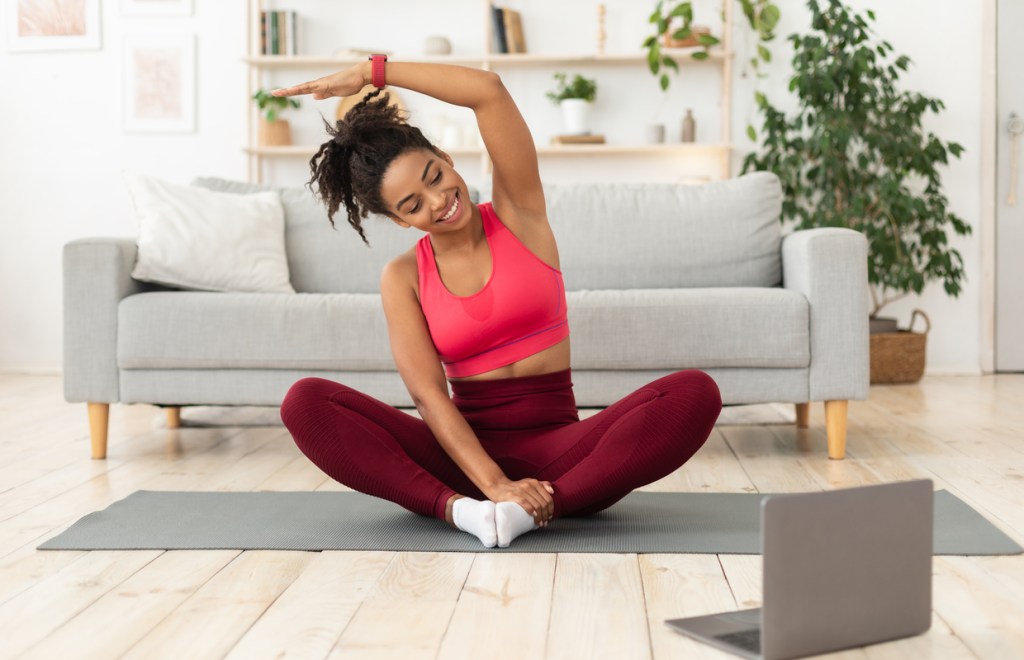
3. Exercise regularly to beat anxiety
We know: you’re probably sick of hearing about how great exercise is for your mental and physical health. We also know that exercise is quite possibly the last thing you feel like doing when you’re anxious or upset. But, the truth is that exercise really is the original natural remedy for anxiety.
Why is exercise good for anxiety?
Exercise is a great way to beat anxiety, because it helps to bring levels of the stress hormones cortisol and adrenaline back to normal. It also raises feel-good endorphin levels and increases body temperature, which may have a calming effect.
‘Exercise can be an exceptionally powerful tool to help manage stress and anxiety disorders,’ says Leanne Spencer, a personal trainer who has helped people suffering from anxiety and other mental health issues, after suffering from anxiety herself. She has found that pad work (boxing) is particularly helpful for helping clients to de-stress.
Can exercise worsen anxiety?
While gentle exercise can certainly help with the management of anxiety, it is true that you can have too much of a good thing. Dr Chheda-Varma advises against excessive exercise as, ‘This can raise adrenaline levels even more, potentially worsening feelings of anxiety.’
If you’re new to exercise, try out some lower-impact forms of exercise first, like walking or yoga, before building up to high-intensity workouts. As your fitness improves, and you increase your levels of physical activity, make sure you still incorporate rest days into your week. Listen to your body!
Find out more: Walking and mental health – understanding the benefits
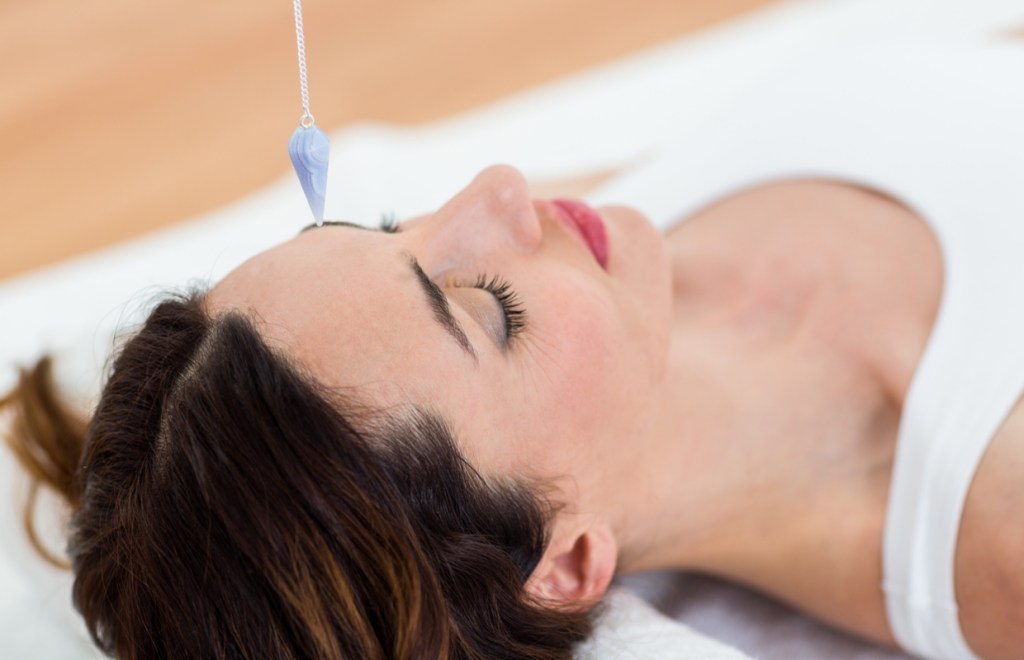
4. Visit a hypnotherapist
Although it’s not approved by the National Institute for Clinical Excellence (NICE), there is anecdotal evidence that hypnotherapy may be beneficial for anxiety, according to Anxiety UK. Juls Abernethy, hypnotherapist and behaviour coach at The Body Retreat says: ‘Hypnotherapy combines talking therapy with relaxation, often combining psychotherapy with work that’s done in a trance state.
Trance is a wonderful relaxing state that also helps to reduce stress levels, increase self-esteem and feelings of personal control.’ Writer Jenny Cooper saw a clinical hypnotherapist for her anxiety. ‘The hypnosis was fine – I just felt deeply relaxed. I could still hear everything that was going on as I was fully conscious but ultra-laid back!’ She recorded the hypnosis onto a CD and listened to it a couple of times a week, turning it into her ‘down time’ for relaxation.
If you don’t feel comfortable going to a hypnotherapist, there are certain self-hypnosis techniques your can try too.
Find our more: Self-hypnosis: how to practise hypnotherapy for anxiety
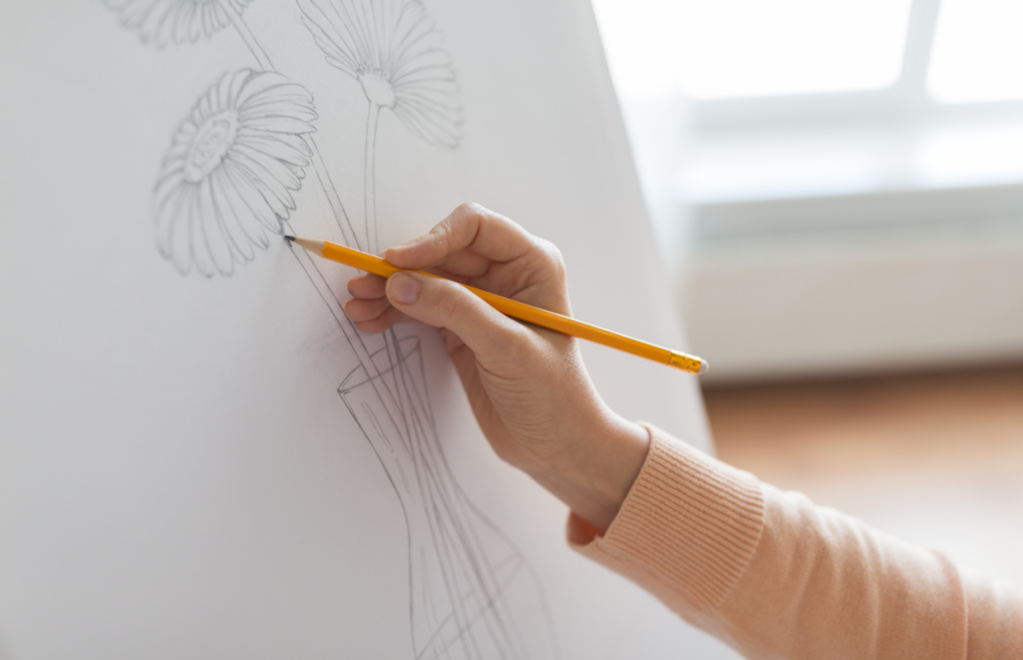
5. Draw or sketch to beat anxiety
Practicing creative hobbies is a great way to work through thoughts and emotions. Even if you’re not an artist, sketching and drawing provides a safe space for you to encourage your creativity and practice mindfulness. Some people also like to express their anxiety through their drawing, by creating a visual representation of how they are feeling.
Not sure where to start? Grab a pencil and a piece of paper, and simply sketch through what you are going through. Let your lines be shaky and uncertain if they want to be. Let them be as wild and nonsensical as you can allow them to be. The blank paper is the safe space you need it to be. Give your mind permission to wander wherever it wants to go.
Find out more: What is art therapy? Benefits for mental health
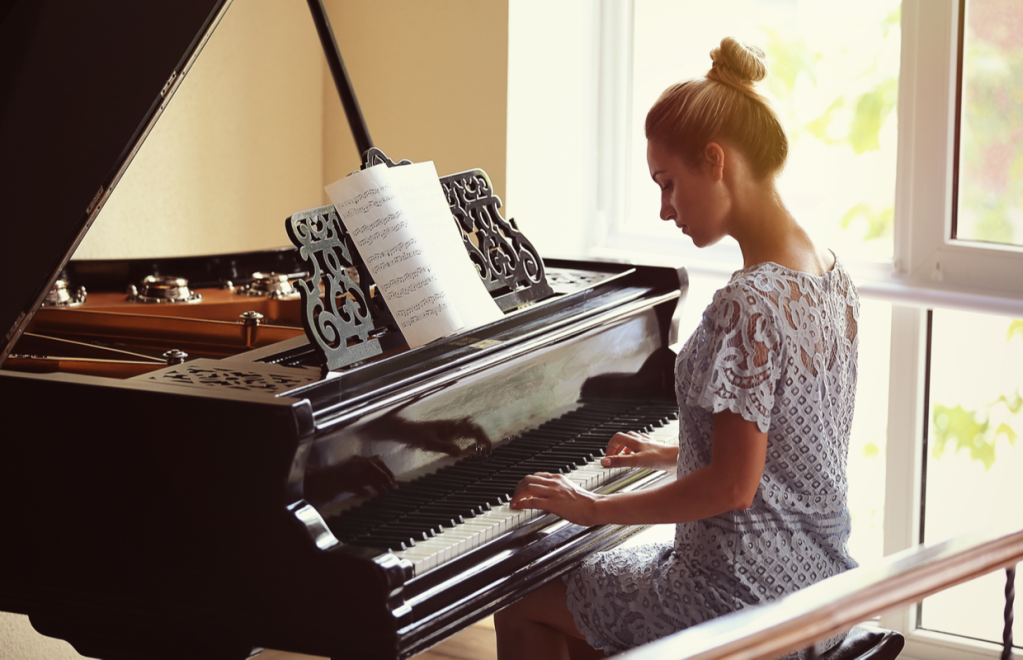
6. Listen to music or play an instrument
Music has often been used in clinical settings to reduce pain, ease muscular tension and relieve symptoms of anxiety. Beyond physical comfort, music quietens the mind profoundly. Renowned British pianist James Rhodes touts music as one of the most powerful modes of healing.
Next time you feel your anxiety heightening, pop on some noise cancelling headphones and zen out to your favourite tunes – whether it’s classical, rock, pop or anything in between, allow the music to fill you up and quiten your chattering mind.
Alternatively, why not try playing a musical instrument when you’re feeling anxious? Even more so than simply listening to music, playing an instrument truly grounds you in the moment, because you are also focusing on a task. If you’ve never played an instrument before, why not start learning?
If you don’t feel comfortable going to a class, there are hundreds of online tutorials for different instruments. This way, you can self-teach from the comfort of your own home.
Find out more: Stress relief music: how to reduce anxiety
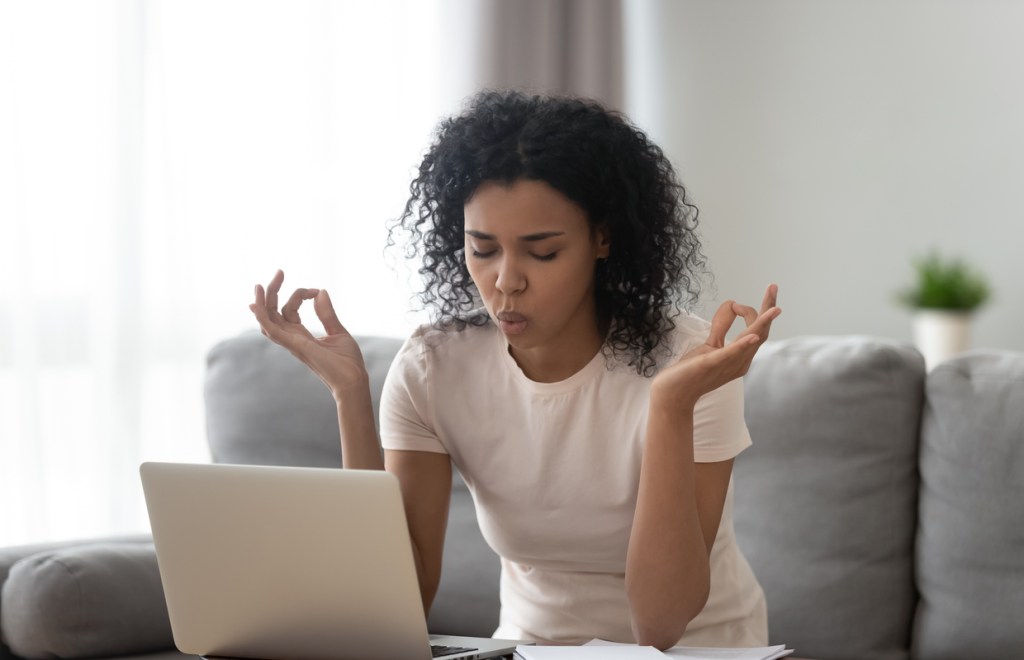
7. Try deep breathing exercises
In yoga and meditation, the breath is seen as the most powerful tool we have. So, it makes sense that breathing exercises are often recommended for calming anxiety.
Deep breathing, which uses the full space in the abdomen to fill with air rather than only our chests, is scientifically proven to increase oxygen within the body, creating energy and improving functionality. It also balances the nervous system, lowers our heart rate, decreases the production of stress hormones, cortisol and adrenaline, and cleanses our body of carbon dioxide and 70 per cent of other bodily waste.
Find out more: Stress breathing exercises: self-soothing breath technique
Find what works for your anxiety
It’s important to note that everyone is different – and everyone’s experience of anxiety is different. Because of this, the methods that might help one person may not be useful for someone else.
Here at Psychologies, we are dedicated to sharing expert advice on looking after your mental health and improving your wellbeing. However, if you are struggling with your mental health, to the point where it is impacting your day-to-day life, we recommend seeking help from a professional, who can help you to find specific methods and techniques that work for you.
For further information about tackling anxiety, visit anxietyuk.org.uk and simplyhealth.co.uk







